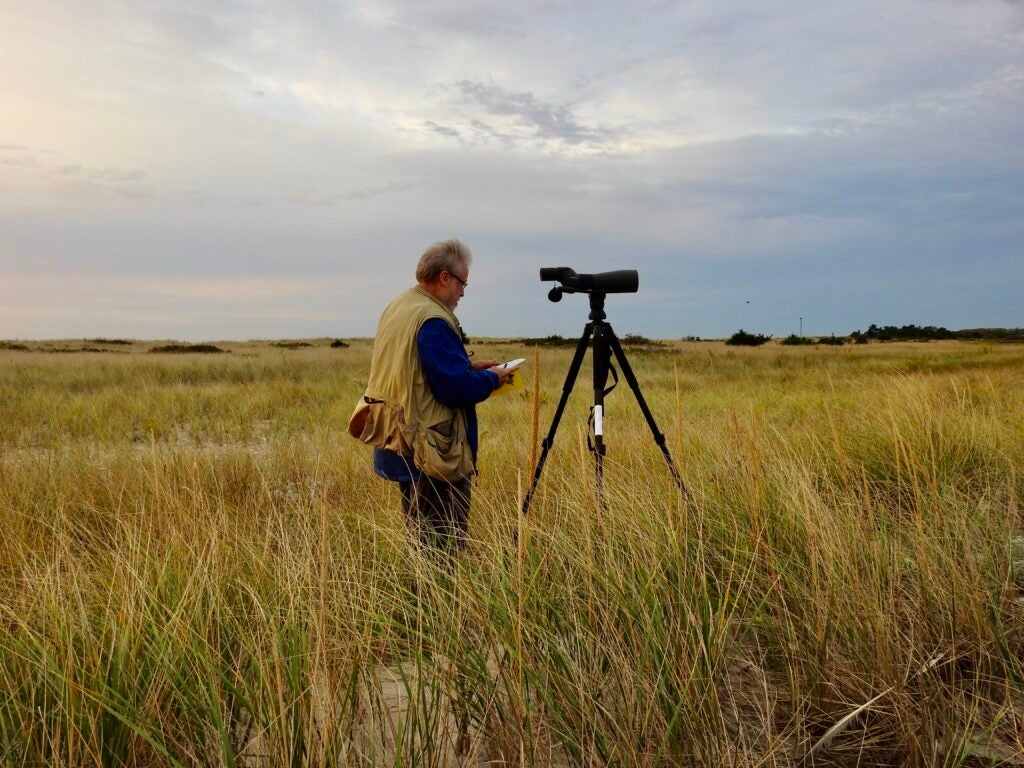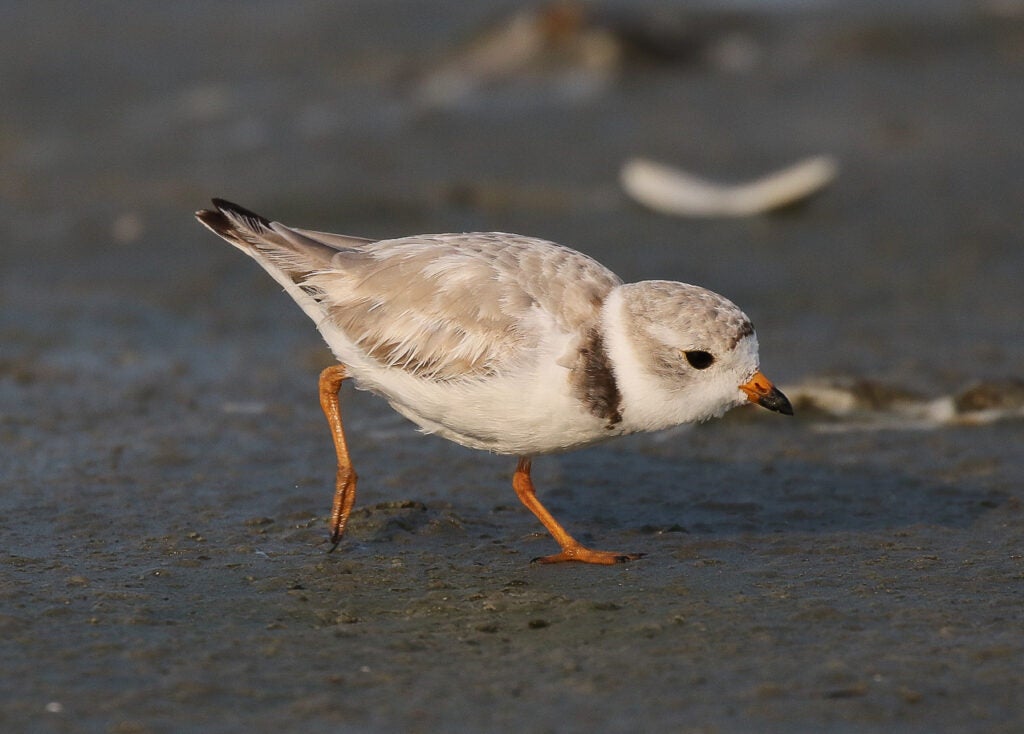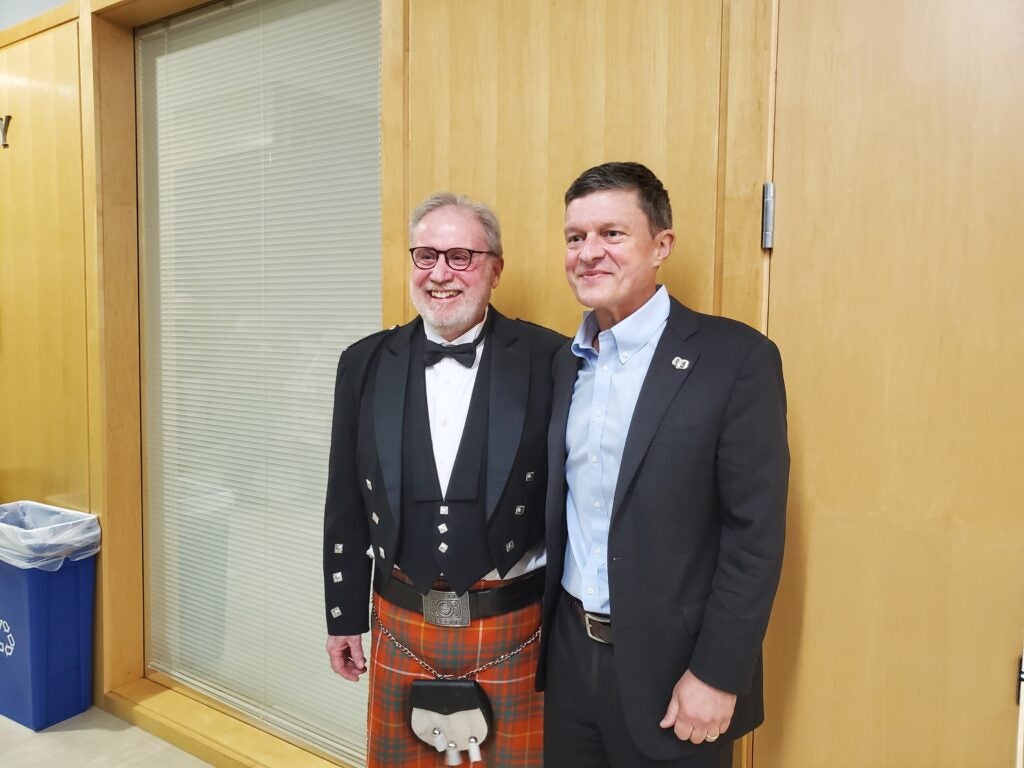
KINGSTON, R.I. – Dec. 7, 2023 – A veteran faculty member in the University of Rhode Island’s College of the Environment and Life Sciences has been recognized by the Rhode Island Natural History Survey as a top naturalist in Rhode Island. Richmond resident Peter Paton, chair of the Department of Natural Resources Science (NRS), was honored in November with the Distinguished Naturalist Award.
In addition to his ornithological research, Paton teaches popular field courses at URI in ornithology, wetland wildlife management, and management of migratory birds.
“Peter has instilled a love of birds and wetland habitats in hundreds of students,” says his NRS colleague and professor emeritus Art Gold. “His field courses are always oversubscribed and his students come back from each field trip bubbling with excitement.”

Throughout his career, including the past nearly 30 years at URI, Paton has been a leading researcher and an influential teacher. He worked as a federal wildlife biologist and contract biologist for 10 years before joining the URI faculty in 1995.
Paton also invests a great deal of time helping local communities develop a deeper appreciation for nature, through walks and talks for organizations such as the Audubon Society of Rhode Island, Watch Hill Conservancy, and the U.S. Fish and Wildlife Service. He brings people out to the field to directly experience incredible natural phenomena in their own ‘backyard,’ such as the spring migration of frogs and toads and the banding of saw-whet owls and songbirds during fall migration.
Receiving the award, Paton joined several other esteemed recipients of the Distinguished Naturalist Award, including a number with URI connections.

Paton’s URI colleague and professor emeritus Keith Killingbeck (biological sciences) says he has made significant contributions in enhancing public awareness of the importance of local biota. And Professor of Natural Resources Science Scott McWilliams adds, “Peter is indeed a distinguished naturalist. He has studied a wide diversity of critters on so many fronts, a testament to his curiosity, willingness to study animals wherever they may roam, and love for fieldwork.”
Paton has studied snowy plovers on the Great Salt Lake, the effects of timber harvesting on spotted owls and marbled murrelets at the Redwood Science Laboratory, egrets as an airstrike hazard in Hawaii, endangered birds on the Hawaiian islands, and birds breeding in Denali National Park in Alaska.
Closer to home, he’s written about the ecology of Block Island, amphibian breeding in Rhode Island ponds, glossy ibis’ use of farmland in the state, breeding birds in Boston Harbor, migration habits of spotted salamanders on southern New England golf courses, salt marsh restoration in Narragansett, and the effects of the North Cape oil spill on coastal Rhode Island. He’s also on the science advisory board for Watch Hill Conservancy at Napatree Point in Westerly and was instrumental in the development of the recently published Breeding Bird Atlas of Rhode Island.
Paton’s involvement in the long-term study of terns on Great Gull Island in Long Island Sound has also shown students, volunteers, and other scientists how to conduct conservation science, with the added spectacle of thousands of breeding colonial birds and the demonstrated fragility of such a system.
For the past 30 years he has helped to run the Kingston Wildlife Research Station, a collaboration between the Audubon Society and URI, and the longest-running bird-banding operation in North America.
A naturalist’s life
At the awards presentation, attendees enjoyed Paton’s presentation on “the life history of a naturalist,” an entertaining look at his prolific career.
“I was incredibly honored to receive this year’s award,” Paton says. “There’s been some very good naturalists honored. It’s really nice to be ranked in their company.”
Paton grew up in Colorado, and says he always loved the outdoors. His family gave him an appreciation of being in the mountains. At Lewis and Clark College in Portland, he had the opportunity to take his first natural history class, which proved to be a life-altering decision.
“I just got hooked,” he says. “That one class ended up changing my life.”
Now he enjoys trying to give students a similar experience; he says he enjoys getting to teach and work with undergraduates, to give them the chance to explore as he did.
And he encourages others in the Rhode Island community to explore the local birding landscape, too. Paton recommends Napatree in Watch Hill as a great place to see birds and take a walk, as well as Trustom Pond National Wildlife Refuge.
He even introduced the new URI president and his wife to Rhode Island’s avian wonders when they arrived in Rhode Island two winters ago. Marc and Mary Parlange joined Paton on a field trip to Sachuest National Wildlife Refuge one chilly morning a few months into their first year at URI.
“I hooked President Parlange, too!” he says.
